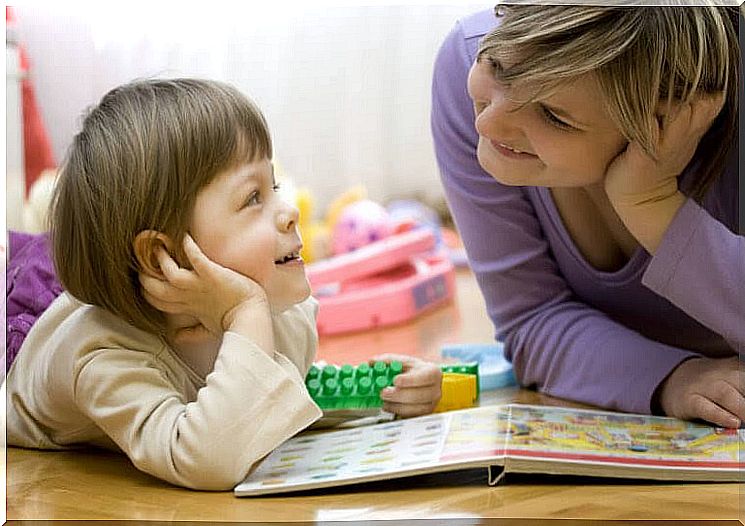7 Speech Exercises For Children With Language Delays

Do you need tips on speech exercises for children? Then you’ve found the right place!
Young children can show signs of language delays without necessarily having more serious problems later in life. Preschool children who have difficulties with language need support and stimulation. Speech exercises, such as those described in this article, can eventually help many children overcome language delays.
If your child is late in developing his language skills, he needs the help of a professional speech and language therapist. However, you can also work to develop his skills with daily activities.
If your child has minor language difficulties or if you want to help improve his or her language acquisition, read on to learn about speech exercises that you can test together.
Speech exercises for children
1. Flashcards
Flashcards can help children learn sounds that they have difficulty pronouncing. Turn the activity into a game and reward your child when he pronounces the sounds on the cards correctly.
This not only makes the exercise more fun for your child, but also motivates him to say the sound correctly all the time.

2. Speech exercise with mirror
Children who have difficulty articulating may struggle to pronounce certain sounds and words. This is because the child cannot make the right movements with the mouth to produce the right sound.
Mirror exercises are one of the most useful ways to teach young children to pronounce sounds and words properly.
Teach your child how to make the right shape with his mouth and pronounce the sound that comes with this movement.
Then have your child repeat it in front of a mirror. In this way, he learns how to move his mouth to say words or sounds that he finds difficult.
3. Repetition
It may seem boring to repeat words over and over again , but repetition can be very important to quickly improve a child’s speech.
When repeating words for your child, do so slowly and clearly. Make sure that the child hears and can identify the different sounds in the word. Make it more fun by choosing funny, funny words that make the child laugh.
4. Play: The frog jumps
This is a fun and easy game for developing speech. The exercise involves repeating a word at least six times in a row. Before playing, you must write words that your child needs to learn on paper and spread them around the room.
Your child must then jump from one paper to the next, like a frog in a pond. When the child has obtained a piece of paper, she should read the word (with help if needed). In order not to make the play too strenuous, limit how many jumps the child needs to make.

5. Talk to your child
A child is more likely to develop language early on if its parents and family members talk to them often and a lot and express themselves clearly.
Even hearing adults talk to each other gives young children the chance to learn new words from an early age. It is the key to developing children’s verbal communication skills.
6. Name things
Talking to your child regularly is the best way to develop her speaking and language skills. One way to further strengthen the knowledge is to pronounce the name of things that the child wants and encourage her to repeat the word.
To encourage your child to name the thing, just give her a toy or other item if she can ask for it. Adapt this activity to your child’s level. If she can already speak, she only gets the toy if she uses the right word, but if she is not able to do it yet, you give the toy when you hear a sound similar to the right word.
Over time, you increase the level of difficulty so that your child is constantly challenged to do his or her best. It encourages your child to use language to get what she wants.
7. Read books with your child
Reading a fairy tale with your child is a great way to develop language skills from an early age.
In addition to strengthening the connection between parent and child, a bedtime story is a way to learn new words, recognize sentence structures and practice more complicated words.
As if that were not enough, fairy tales are also a way to stimulate your child’s creativity and imagination.









